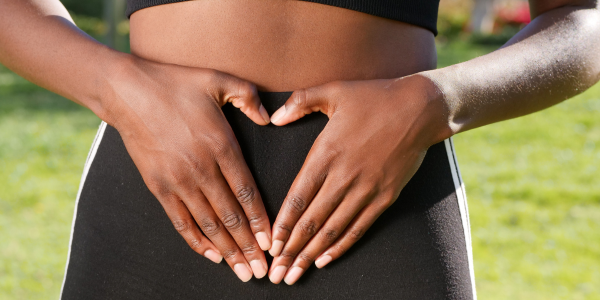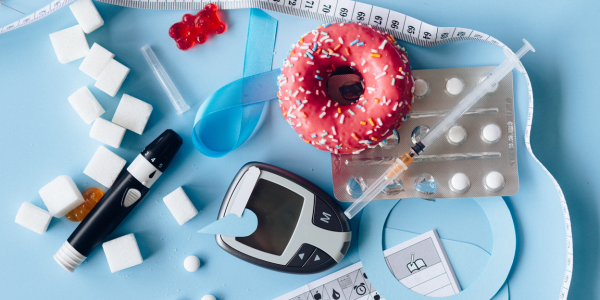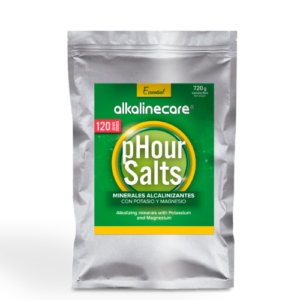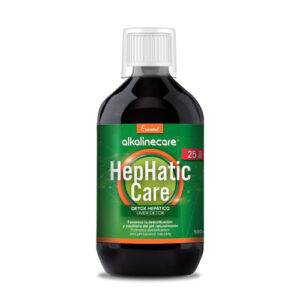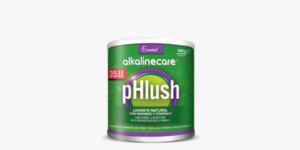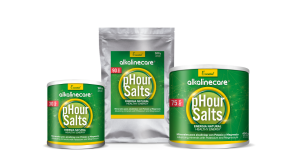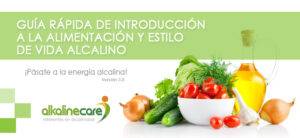Today, we discuss a topic that has sparked much debate in recent times: alkalinity. Although it might seem like a passing trend, research on this subject has been ongoing since the last century. Dr. Otto Heinrich Warburg, Nobel Prize winner in Physiology or Medicine in 1931, argued that acidity and a lack of oxygen compromise the internal environment, promoting the development of diseases. In this article, debunking myths about the alkaline diet.
Similarly, Dr. Alfred Pischinger, an Austrian physician, histologist, and embryologist, known as the father of histochemistry and the creator of the concept of the basic or third system, also confirmed that the origin of diseases stems from the accumulation of toxins (acidity) in the interstitial space around the cells.
Given that this is a new perspective on the origin of diseases, inflammation, and pain, it has raised doubts and misunderstandings that we aim to clarify in this article.
Common Myths About the Alkaline Diet
-
The goal of the alkaline diet is to alkalize the pH of the blood.
The alkaline diet does not aim to alter the bloods pH. Bloods pH is stable (between 7.3 and 7.4), and the body will do everything possible to maintain it, as even a slight variation could cause serious health issues. The goal of the alkaline diet is to provide the body with the necessary resources (minerals, vitamins, amino acids, enzymes, antioxidants) to help it maintain its pH with minimal effort.
-
It is impossible to alkalize the body since it has its own internal mechanisms to regulate its pH.
It is true that the human body has an internal regulation mechanism. As mentioned earlier, bloods pH always ranges between 7.3 and 7.4, and the body will do everything possible to maintain it. However, this refers to interstitial pH, meaning the fluid that bathes and surrounds all our cells. Through this fluid, cells receive nutrients, electrolytes, and oxygen, but it is also where cellular waste ends up. As Dr. Alfred Pischinger stated, this fluid can be more alkaline or more acidic, depending on our diet, the medications we take, and other lifestyle and environmental factors.
-
Acidic urines pH is a good sign because it indicates that the body is eliminating acids.
Our natural filters—liver, kidneys, lungs, and skin—are responsible for cleansing the body of acids and toxins. While it is true that urine is one of the main vehicles for eliminating toxins and acids from the body, a very acidic pH is not always a good sign.
Although it is natural for the first urine of the day to be more acidic, around 6, it is not beneficial to always have a highly acidic (5 or 6) urine, except in certain situations such as fasting, for example. A pH urine around 7 throughout the day is recommended.
-
The urine pH indicates the bloods pH.
The pH values of blood and urine pH are independent. As mentioned earlier, the kidneys eliminate waste from our metabolism, diet, and lifestyle through urine. In short, urine pH indicates the acids being eliminated from the interstitial space, so it is subject to change.
Meanwhile, bloods pH is stable (7.3 to 7.4). While it can vary only in extreme situations, such as diabetes or respiratory failure, the bloods pH doesn´t reveal our state of alkalinity/acidity (low-grade metabolic acidosis).
-
Being vegetarian or vegan is enough to be alkaline.
While it is true that vegetarians and vegans reduce or eliminate the intake of animal products, such as red meat, which is highly acidic, this doesn´t necessarily mean that their diet is healthy, especially if it´s high in carbohydrates, dairy, and sugar. A diet that helps maintain a balanced pH includes, in addition to consuming more vegetables, particularly leafy dark greens vegetables rich in chlorophyll, many other factors that vegetarianism don´t always address. The most important include:
– Avoid acidic foods. In addition to meat and fish, many other foods can disrupt the body’s pH balance as for example alcohol, cola drinks, dairy products, refined flours, processed pastries.
– Avoid processed foods. In many cases, processed, pre-cooked, and packaged foods contain artificial additives, colorings, flavorings, and preservatives. Opt for homemade food to control the ingredients.
– Consume more raw vegetables. Cooked vegetables can significantly reduce its nutritional value. Therefore, it is important to eat raw vegetables (food) or use low-temperature cooking methods (below 50°C) to preserve its vitamins, minerals, and enzymes. A great way to consume them is in fresh juices or smoothies.
– Seek for good habits. It is important to get enough sleep, spend time in nature, exercise, and learn to manage stress.
– Drink enough alkaline water. It is important to drink between 5 and 8 glasses of alkaline water daily because it has a powerful antioxidant and hydrating effect. With PuripHy, you can easily and affordably make your own alkaline water at home.
– Take alkaline minerals salts. Even with a varied alkaline diet, it is advisable to take essential minerals/electrolytes with magnesium and potassium daily. This helps maintain the body’s alkaline design and neutralize body acids. For this, you have Phour Salts, a compound that alkalizes de body, provides instant energy, regulates digestion, and is ideal for the whole family.







